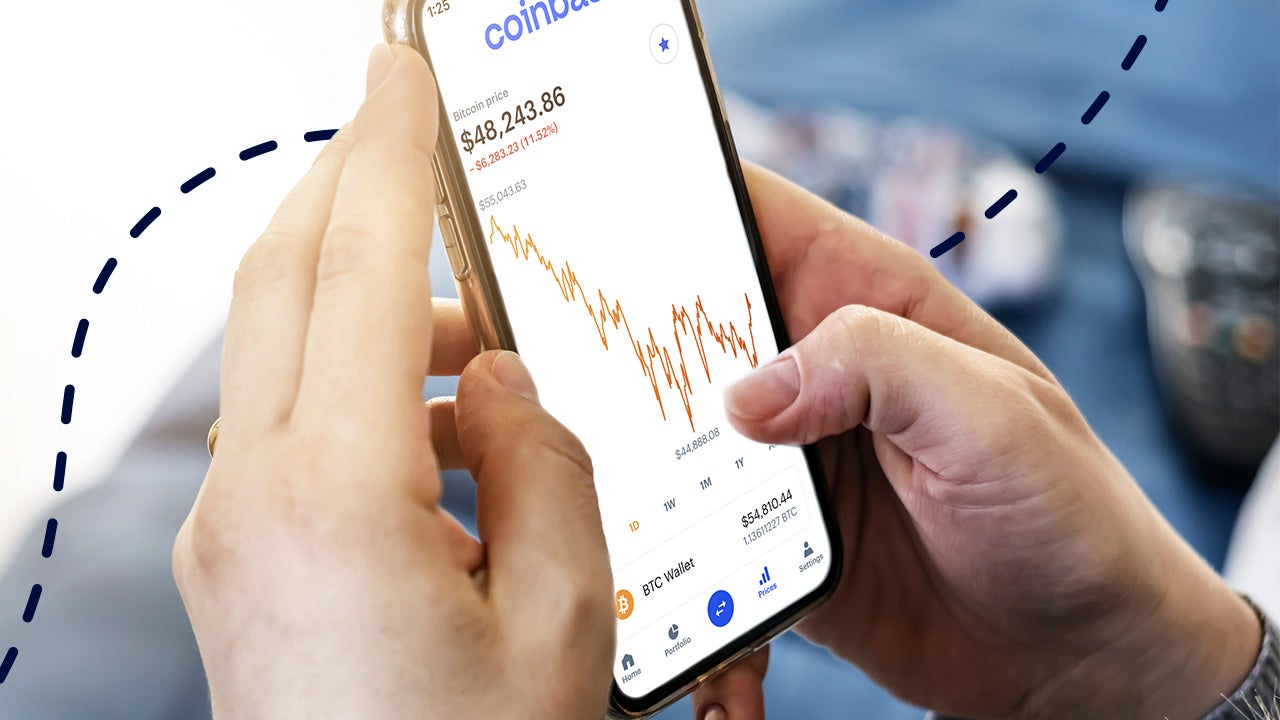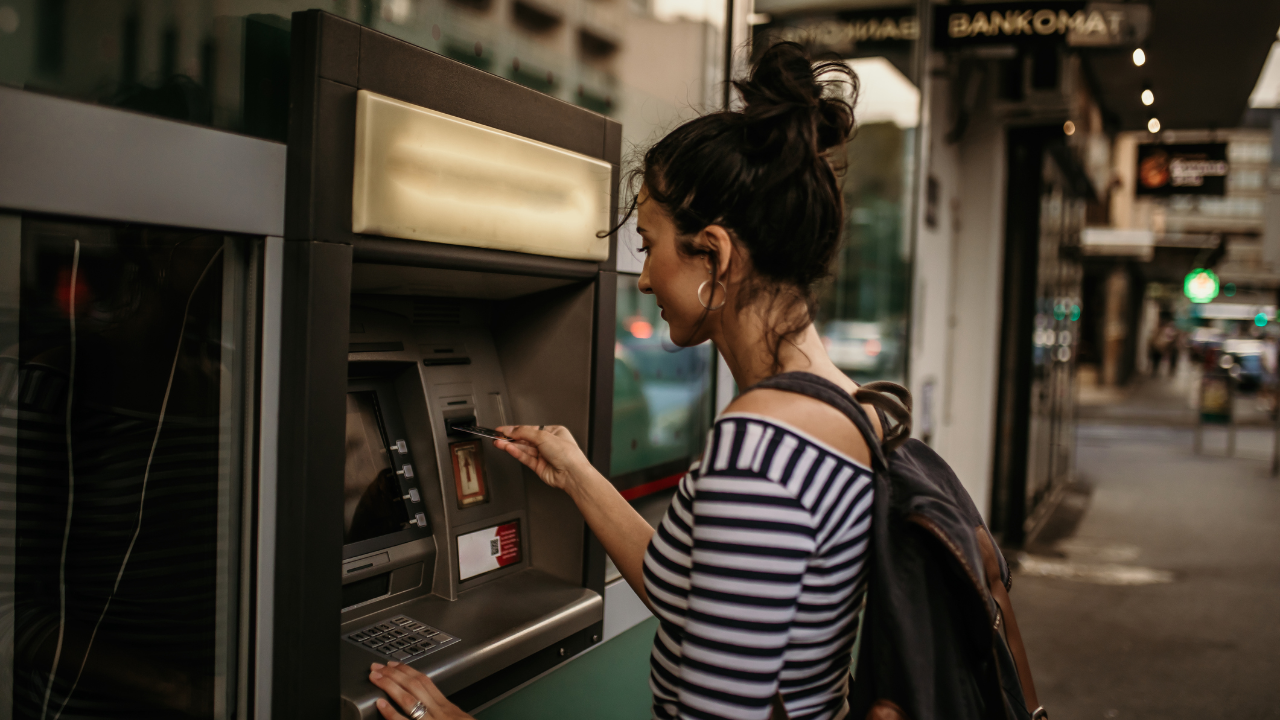As rates and prices rise, is it a bad time to get your first credit card?

The rising costs of everyday living expenses such as food, gas and housing have directly impacted young adults and recent college graduates interested in applying for their first credit card.
There are a lot of reasons why you might feel reluctant about getting your first credit card — including rising inflation and potential financial risks. But by getting a credit card now, you’re putting yourself in a position to have greater control over your future finances while scoring rewards, sign up bonuses and great member benefits.
What are some advantages of getting your first credit card?
Rising prices may make it tempting to wait until you have more money, a better job or an improved living situation, before you get your first credit card. But there are some notable advantages to getting your first credit card sooner rather than later. Having a credit card can help you:
Learn to manage your finances
One of the biggest fears about getting a credit card is racking up debt and not being able to pay it off. However, if you’re careful with your spending habits, a credit card can be an excellent way to teach yourself how to budget properly. You’ll learn how much money you need each month and how much to put aside for unexpected expenses, such as car repairs or medical bills.
Build your credit history
Credit cards also help build credit history, which can help you establish a good financial reputation early in your life. Your FICO score is calculated by several factors, including how long you have had a good payment history and whether or not you have any late payments on your report. Having a credit card early on can help build up this part of your score, so that when you apply for a mortgage or car loan in the future, lenders will see that you’ve been responsible and are likely to continue paying bills on time.
Earn rewards on purchases
Credit cards often come with a rewards program that gives you cash back or other perks for using them to make purchases. Some even offer miles or points that can be redeemed for travel or merchandise.
Cash back rewards are one of the most popular incentives offered by credit cards. Many cash back rewards cards have no annual fee and provide a percentage of cash back on every purchase made using your card. For example, if you spend $2,500 and can earn 5 percent cash back, you could earn up to $125 in cash rewards (assuming there are no other fees).
If you pay off your balance every month and avoid going over your approved credit limit, those rewards can add up and be worth hundreds, or even thousands of dollars each year, depending on your spending.
Handle emergency situations
With a credit card, you have a safety net so that when things do go wrong, such as unemployment or a medical emergency, there is always some available cash on hand — even if it means charging something as small as $15 to make a payment until payday arrives.
What are some disadvantages of getting your first credit card?
Though there are major benefits to getting your first credit card in 2022, there are potential concerns as well. These include:
Ongoing fees
Some credit cards don’t charge an annual fee, but for cards with high-end benefits, that fee can exceed $50 each year. You could try to aim for $0 annual fee cards instead, however, if you earn high rewards on purchases, you could easily earn back what you spend on the annual fee.
But in addition to the annual fee, there may be other fees to consider, such as foreign transaction fees, balance transfer fees or late payment fees. So it’s important to read the fine print before applying for one.
Interest rates on the rise
The biggest drawback of getting your first credit card at this point in history is that interest rates are currently on the rise. This trend began in March 2022 and shows no sign of slowing down. With card APRs rising in lockstep with federal interest rates, if you end up carrying a balance, the high interest charges could make up a large portion of your monthly expenses.
But despite the higher rates, you can still benefit tremendously from getting your first credit card, taking advantage of the perks and rewards — if you manage your credit card balance responsibly.
Potential to miss payments and rack up debt
If you use your credit card too often and don’t pay down your balance each month, you could end up carrying a lot of debt — and paying a lot of interest — over time. In fact, according to the Federal Reserve Bank of New York, Americans owed nearly $841 million on their credit cards as of Q1 2022.
This means that even if you make every payment on time, interest will still continue to decrease your available credit if you don’t pay off the entire bill each month. And if your interest rate is high (which is why it’s important to find a low-interest card), exceeding your credit limit could put your account into default. If this occurs, it will be shown on your credit report and will have a negative impact on your credit score.
How to know if it’s the right time to apply for your first credit card
If you’re just starting out as a young adult and don’t have much of an income yet, then you might feel that it’s best to wait before getting your first credit card. However, if you’ve obtained at least a part-time job, fellowship or steady stream of income, or have already established yourself in your career and can afford to carry a balance, then this is a great time to get your first credit card. Just do your homework, understand interest rates and fees and choose a card that aligns with your financial goals.
What you should do when using your first credit card
- Pay down balances each month to avoid interest charges and penalty fees. Some cards charge an annual fee and higher interest rates for people with a limited credit history or high balances. If you’re only paying the minimum balance required each month, the interest charges will outweigh any rewards you earn on your purchases (unless you’re getting a particularly high cash back or miles/points bonus).
- Look out for changes in interest rates and fees with the cards that you consider. Many rewards credit cards offer 0 percent introductory APRs on balance transfers or new purchases, but these can come with strings attached. The 0 percent APR period often ends after 12 to 21 months and the regular rate kicks in suddenly on any remaining balance at that point — sometimes as high as 20 percent. So if you plan to transfer a big balance onto one of these cards, only do so if you can pay off the entire balance before the introductory rate expires.
- Build an emergency fund that covers at least three to six months of expenses. While it’s true that the cost of borrowing is higher than in years past, you can still ride out market swings by building an emergency fund and being smart about the amount you charge on your card each month. (High utilization rates can lead to higher interest rates on both savings and credit cards.)
What you should avoid when using your first credit card
- Avoid using your credit card for cash advances to cover emergencies or unexpected expenses. A cash advance is when you use your credit card to get money from the bank, usually through an ATM or a check-cashing service. Cash advances have higher fees and interest rates than regular purchases, so they’ll cost you more in the long run.
- Avoid being late on credit card payments by setting up different payment options that work for you. Missing payments can hurt your credit score badly enough that it takes years to recover from the damage. To avoid this, set up automatic payments so that your balance is paid off in full by the due date each month. If automatic withdrawals aren’t available through your bank or credit union, consider setting up an online bill payment service with another institution that offers this service directly through their website or app, such as Prism.
- Avoid making any major credit changes before applying for a loan like refinancing or closing out a credit card account. When you apply for a loan, lenders will look at all of your current assets and liabilities as part of their decision-making process. It’s best to keep all your old accounts open until the application has been submitted and approved. Even if they have high balances, they still help build good credit history and may be worth keeping around for the time being.
The bottom line
Developing good financial habits is important. Even if you’re concerned about current economic challenges, getting your first credit card in 2022 can be extremely beneficial for you.
If you avoid spending more money than you have, pay your bills on time, and keep your balance low, you’ll be much more prepared when it comes time to buy your first home or car. No matter how well the economy is doing when you finally decide to take the plunge, the right credit card can be a handy tool in improving your credit, managing your day-to-day finances and taking you one step closer to your financial goals.
Why we ask for feedback Your feedback helps us improve our content and services. It takes less than a minute to complete.
Your responses are anonymous and will only be used for improving our website.







